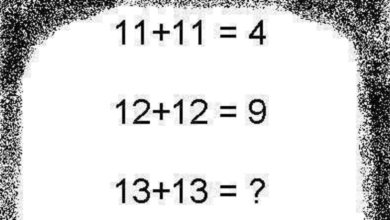PadMan Movie Review: Akshay Kumar Delivers Gutsy Performance In Flawed But Well-Intentioned Film

Cast: Akshay Kumar, Sonam Kapoor, Radhika Apte
Director: R Balki
Rating: 2.5 Stars (Out of 5)
The PadMan protagonist, modelled on grassroots innovator Arunachalam Muruganantham and played by Akshay Kumar, has a question for his nonplussed wife: you make such wonderful malpuas for me, why can’t I make sanitary pads for you? The interesting, if rather odd, quid pro quo is necessitated by the serious health hazards that the newlywed village woman exposes herself to by using a filthy rag when she is on her period.
Lakshmikant Chauhan – yes, Arunachalam inexplicably morphs into a central Indian school dropout in R Balki’s PadMan – buys a pack of sanitary pads. It costs a bomb. His wife, Gayatri (Radhika Apte), is aghast. We’ll now have to forgo milk, she argues as she wonders why her mechanic-husband should fret over a ‘woman’s problem’. She swears by the community’s reeti riwaaz (traditions) and segregates herself on those five days of the month. It is now the man’s turn to look askance. Lakshmi, too, cannot fathom why sanitary pads are so expensive. Itni halki cheez ka itna bhaari daam kyun (Why should the price of something so light be so heavy), he asks the medicine store salesman. The latter has no answer. So Lakshmi resolves to device a way of producing cheaper napkins to prevent the family budget from going haywire and, of course, to protect his wife from harm.
He runs into a series of hurdles: scepticism, superstition, ridicule, condemnation, and finally even banishment from the village. But he continues to chip away regardless. His obsession spells trouble. He is branded a mad man and eventually ostracized. His wife is yanked away from him, his mother threatens to leave home, and he is compelled to take off for Indore.
This, broadly speaking, is the first half of the 140-minute PadMan. Until the intermission, the film remains largely true to Arunachalam’s real-life story. But despite the undeniable urgency of Lakshmi’s onerous mission, neither the single-minded reformer nor the goal that he sets himself assumes the heft it should have.
This, however, has little to do with the overall quality of the film. PadMan is well-made; the writing (by the director himself with additional inputs from Swanand Kirkire) is generally neat; and both the cinematography (P.C. Sreeram) and the editing (Chandan Arora) are first-rate. PadMan is by no means a bad film hiding behind the cloak of social relevance.
The decision to relocate a Tamil Nadu story to a part of central India is the least damaging of the film’s missteps. The most off-putting aspect of PadMan are its uneven tonal shifts: it goes back and forth between being earnest and facetious, when it isn’t jarringly ceremonial.
Lakshmi, when he is down and out, receives a fair bit of help from a character that Balki injects into the plot – a talented female tabla player and MBA grad Pari Walia (Sonam Kapoor), who turns her back on the promise of a cushy career to become an active associate of the rural change agent.
Lakshmikant Chauhan is an ordinary man with extraordinary courage. The screenplay contrives a scene for Amitabh Bachchan, playing himself, to laud the hero’s yeoman work. The Americans have Superman, Spider-Man and Batman, India has PadMan, he grandly declares at a National Innovation Fest in IIT Delhi. Riding on the famed baritone, it sounds great. But this sort of ersatz triumphalism seems out of place in a film about a common man who masterminded a real-life movement, sacrificing much – his wife, his mother, his village, his atma samman (self-respect) and 90,000 rupees, as Lakshmi himself enumerates – in the bargain.
As the film begins to wind down and Lakshmi inches ever closer to success with his low-cost sanitary napkins, he heads to the United Nations to deliver a talk. Playing on Pari’s name, he acknowledges the role of a fairy who taught him how to fly. Getting the activist to share the credit with a woman is a canny move. It stops the film from being another Toilet: Ek Prem Katha, where it is a ‘heroic’ man who does all the heavy lifting in his mission to end open defecation in his village.
But even as it seems to be mindful of enforcing gender balance, PadMan reinforces standard Bollywood notions of masculinity. In one scene, Lakshmi asks: Ek aurat ki hifazat karne mein nakamayab insaan apne aapko mard kaise keh sakta hai (How can a man who fails to protect a woman call himself a man?)
In another scene, Gayatri says to her husband as he slips into one of his rare weaker moments: Aap mat roiye, mardon ka rona achcha nahi lagta (Don’t cry, it isn’t nice when a man sheds tears). Lakshmi, as the title song emphasizes, is a superhero of a different timbre, but he, too, has to subliminally subscribe to Hindi cinema’s take on who and what a mard should be.
The romantic sub-plot between the married Lakshmi and the much younger Pari – suggested by the way of an abrupt kiss that the latter plants on the man’s lips and then a tentative snuggle – does not work at all. The forced emotional tug only serves to extend the film by a few minutes but adds no real meat to it.
At one point in the film, Lakshmi berates Gayatri for not moving with the times. This is 2001, he points out. Rani Mukerji ke zamaane mein Devika Rani ki baat kar rahi ho (In the age of Rani Mukherji you are talking about Devika Rani), he quips. So it is safe to assume that what we see on the screen spans a decade and a half. Muruganantham won his Padma Shri in 2016: this is factored into Lakshmi’s tale. But at no point does the film indicate the passage of time. Lakshmikant and his wife miraculously keep the process of ageing at bay and look exactly the same all through the film.
But these flaws apart, PadMan is a well-intentioned film that derives strength from Akshay Kumar’s gusty performance although he isn’t strictly the right fit for the role of a just-married man. Radhika Apte is, as always, a scene-stealer. She contributes majorly to ensuring that the exchanges between the protagonist and his wife do not veer into corniness. Sonam Kapoor, who surfaces well into the second half, makes the most of the limited opportunity.
1
COMMENTSWhile the character that Sonam plays is not only the first genuine user of Lakshmi’s two-rupee pads, but also an associate who extends the sphere of his influence by roping in other women to form self-help groups, the actor is called upon to merely stand by and watch a ‘mad genius’ at work. It is easy to see that her presence is largely superfluous.
But PadMan isn’t because the story just had to be told. It’s been done before – in last year’s low-budget Phullu and the unreleased I-Pad. Here, it is the canvas and the presence of an A-list star that makes the difference. A wide audience is guaranteed.







